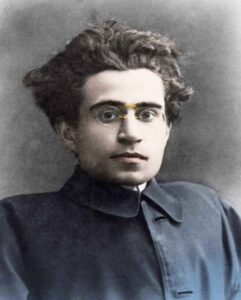Jayaprakash Narayan : Total Revolution
Jayaprakash Narayan (1902–1979), popularly known as JP, was a prominent Indian freedom fighter, socialist, and political reformer. His concept of Total Revolution (Sampoorna Kranti) emerged during the 1970s as a response to what he perceived as the growing moral, political, and social crisis in India. Total Revolution was an all-encompassing call for change that sought to transform Indian society and governance to align with values of justice, democracy, and moral integrity.
Origins of Total Revolution
- Context:
- The 1970s in India were marked by widespread disillusionment with the political system, corruption, and authoritarianism, particularly during Indira Gandhi’s tenure as Prime Minister.
- JP launched the movement for Total Revolution as a response to the failure of the state apparatus, rising unemployment, inflation, and the erosion of democratic principles.
- Influences:
- JP was influenced by Gandhian ideals of non-violence and moral integrity, as well as Marxist and socialist principles of economic equality.
- His exposure to Vinoba Bhave’s Sarvodaya Movement also shaped his holistic and transformative approach to societal change.
Key Tenets of Total Revolution
JP defined Total Revolution as a multi-dimensional process aimed at transforming all aspects of life. The main pillars of the revolution included:
- Political Revolution:
- Advocated for a decentralized democracy where governance was brought closer to the people through Panchayati Raj.
- Sought to eliminate corruption, authoritarianism, and electoral malpractices.
- Critiqued the centralization of power and called for greater accountability and transparency in governance.
- Social Revolution:
- Focused on eradicating caste discrimination, communalism, and gender inequality.
- Promoted the idea of a classless and egalitarian society where human dignity was prioritized.
- Economic Revolution:
- Advocated for reducing income disparities, promoting equitable distribution of resources, and alleviating poverty.
- Emphasized self-reliance and cooperative ownership in agriculture and industry.
- Cultural Revolution:
- Called for a revival of moral and ethical values to combat materialism and consumerism.
- Encouraged the adoption of simplicity and community-oriented living.
- Educational Revolution:
- Proposed reforms to make education more relevant to societal needs, focusing on character building and practical skills.
- Stressed the need for education to promote national integration and civic responsibility.
- Spiritual Revolution:
- Urged individuals to cultivate self-discipline, moral integrity, and a sense of social responsibility.
- Believed that spiritual awakening was essential for the success of the revolution.
- Ecological Revolution:
- JP recognized the importance of environmental conservation and sustainable development as integral to the well-being of society.
Implementation of Total Revolution
- Non-Violent Methods:
- JP insisted on non-violence as the guiding principle of the movement, drawing heavily from Gandhi’s strategies during the freedom struggle.
- Youth Mobilization:
- The movement relied on the active participation of students and youth, whom JP saw as agents of change.
- Youth leaders were encouraged to engage in grassroots activism and lead efforts to address local issues.
- Mass Protests and Civil Disobedience:
- JP organized peaceful protests, strikes, and campaigns to demand accountability from the government.
- The movement gained momentum with its call for Sampoorna Kranti during the Bihar Movement in 1974, which highlighted corruption and governance failures.
- Critique of Existing Systems:
- JP advocated for dismantling oppressive and corrupt structures and replacing them with more participatory and inclusive institutions.
Significance of Total Revolution
- Challenge to Authoritarianism:
- JP’s movement was a direct challenge to Indira Gandhi’s government, especially during the period leading up to the Emergency (1975–1977).
- Total Revolution became a rallying cry for opposition parties and civil society groups resisting authoritarian rule.
- Renewal of Democratic Ideals:
- JP reinvigorated the ideals of participatory democracy and people’s power, emphasizing the need for citizen engagement in governance.
- Focus on Morality in Politics:
- Highlighted the importance of ethics and integrity in public life, critiquing the moral decay in political leadership.
- Grassroots Activism:
- Encouraged bottom-up approaches to social and economic reform, empowering marginalized communities.
Critiques of Total Revolution
- Idealism Over Pragmatism:
- Critics argue that JP’s vision of Total Revolution was overly idealistic and lacked clear strategies for implementation.
- The movement’s broad and ambitious scope made it difficult to focus on specific, actionable goals.
- Over-reliance on Youth:
- While youth mobilization was a strength, critics contend that it underestimated the complexity of systemic change and overemphasized the enthusiasm of inexperienced leaders.
- Limited Structural Changes:
- Despite its moral and political appeal, the movement struggled to achieve tangible institutional reforms in the long term.
- Fragmentation of Leadership:
- The movement lacked cohesive leadership and organizational structure, leading to its eventual decline after the Emergency.
Legacy of Total Revolution
- Impact on Indian Politics:
- The movement significantly influenced the rise of non-Congress parties and coalitions in Indian politics, particularly the Janata Party.
- JP’s call for ethical politics continues to resonate in discussions on governance and democracy.
- Empowerment of Civil Society:
- Inspired grassroots movements and activism, fostering a culture of public accountability and citizen participation.
- Critique of Centralized Power:
- JP’s emphasis on decentralization remains relevant in debates on federalism and local governance in India.
- Ethical Framework for Governance:
- Total Revolution serves as a moral benchmark for evaluating political leadership and public administration.
Conclusion
Jayaprakash Narayan’s concept of Total Revolution was a visionary and holistic framework for societal transformation. While its ambitious goals and idealism posed challenges to practical implementation, it remains a powerful critique of corruption, authoritarianism, and social injustice. JP’s emphasis on moral integrity, grassroots democracy, and equitable development continues to inspire movements for systemic change and uphold democratic values in India.















Post Comment